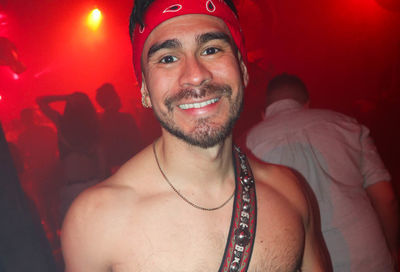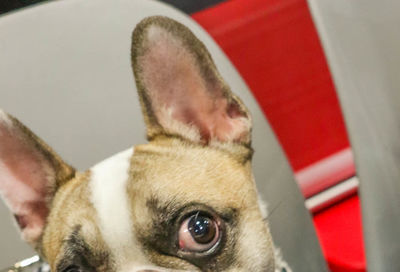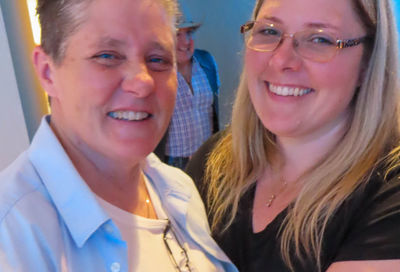Marking IDAHO at HRC
Human Rights First releases its new report on LGBTI refugees at event marking International Day Against Homophobia and Transphobia
Activists around the globe marked the International Day Against Homophobia and Transphobia (IDAHO) Thursday, May 17, a date chosen to mark the World Health Organization’s 1990 decision to no longer list homosexuality as a disease. In D.C., the anniversary was marked with an event tied more to information than to activism. But it is information that will likely help save LGBT – and intersex, meaning those who identify as neither specifically female nor male – lives.
At the Equality Center of the Human Rights Campaign headquarters in downtown Washington, about a hundred people gathered for the release of The Road to Safety: Strengthening Protection for LGBTI Refugees in Uganda and Kenya, a new report from Human Rights First, an international human rights organization with offices in D.C. and New York. The event was presented as the second installment of HRC’s recently launched ”Equality Talks.”
Anne Richard, the U.S. assistant secretary of state for population, refugees and migration, was among the first to address the forum, which included representatives from the Council for Global Equality and the United Nations Refugee Agency (UNHCR).
”I commend your work highlighting the plague of homophobia,” said Richard. ”And I commend Human Rights First for launching a report to bring attention to the threats against LGBT refugees.
”When we read the accounts of abuse and exploitation included in this report, we have but one option: We must stand squarely on the side of the most vulnerable. We must do what we can to provide them an environment where their safety and security is ensured, and their rights and dignity upheld. That must be our priority.”
During the discussion that followed, emphasis was made of the need to create safe spaces for LGBT refugees in either their home countries or host nations, whether that might include circumventing a government hostile to LGBT people or battling homophobia within agencies working to help refugees.
”There is currently some capacity to provide safe shelter to LGBTI refugees in scattered housing,” said Duncan Breen, a senior associate with HRF’s Refugee Protection Program and principal researcher and author of the report. He defined ”scattered housing” as small groups renting housing in cities, ”because they feel that one specific safe house would then become a target for violence.”
”But,” Breen added, ”funds are very limited for these programs. They are often not able to assist everyone who has these kinds of needs. This is an area that the U.S. and other donors can assist in. But sometimes for LGBTI refugees who face high risk of violence, it is difficult to remain for long periods in the specific country. … Temporary shelter may be a solution, but people cannot have to keep on moving every time in order to protect their safety.”
Sometimes resettlement is an LGBTI person’s only reasonable option, he concluded. That option, like all others, usually requires some sort of service provider. In his research for this report, Breen found that would not necessarily be easy, adding that while the report covers Kenya and Uganda specifically, many of its findings and recommendations could be applied widely.
”A number of staff members in organizations that we spoke to also … indicated that they had quite negative attitudes towards LGBTI persons,” said Breen. ”Some cited religious or cultural reasons for that. So there is a need to address this with training, as well as accountability measures, so that people who discriminate against LGBTI refugees or others on similar grounds are then held accountable for their actions. There’s also a need for targeted outreach strategies to let [LGBTI] people know where they can go for assistance, because we saw some big gaps with that.”
Kushaba Moses Mworeko, a gay Ugandan who successfully applied for asylum in the United States and who now lives in D.C., agrees with Breen that there is room for improvement at possibly every juncture in the journey of an LGBT refugee. En route to New York City May 18, Mworeko told Metro Weekly via email that he knows of gay Ugandans who fled to other countries and fared far poorer than he has.
”There are some that went to other countries and started living in refugee camps – a very traumatic experience, especially when you look or are perceived to act different from the norm,” he said.
While Mworeko applied for asylum in the U.S. once he was already here, having come for an HIV/AIDS educational conference, he agrees with Breen’s finding about the need to train and hold accountable those who could be in a position to help LGBT refugees – or nationals – in Uganda and elsewhere.
”There are NGOs (nongovernmental organizations) and community organizations, but their powers are so limited, so they dance the government’s tune,” he said. ”It’s just recently, due to the escalation of the war on gays and the international outcry that these NGOs and civil society organizations have started offering support, like sanctuary and advice.”
Closer to home, Mworeko assesses the U.S. immigration officials he encountered between 2009 and 2011, and again finds room for improvement.
”There is still ‘information poverty’ when it comes to international LGBT issues,” he said, ”which leads to poor, unfounded, partial, misleading judgments on the part of immigration officers.”
Also speaking at Thursday’s event, moderated by Mark Bromley, chair of the Council for Global Equality, was Allison Herwitt, HRC’s legislative director; Eleanor Acer, director of HRF’s Refugee Protection Program; and Larry Yungk, senior resettlement officer at the UNHCR.
Support Metro Weekly’s Journalism
These are challenging times for news organizations. And yet it’s crucial we stay active and provide vital resources and information to both our local readers and the world. So won’t you please take a moment and consider supporting Metro Weekly with a membership? For as little as $5 a month, you can help ensure Metro Weekly magazine and MetroWeekly.com remain free, viable resources as we provide the best, most diverse, culturally-resonant LGBTQ coverage in both the D.C. region and around the world. Memberships come with exclusive perks and discounts, your own personal digital delivery of each week’s magazine (and an archive), access to our Member's Lounge when it launches this fall, and exclusive members-only items like Metro Weekly Membership Mugs and Tote Bags! Check out all our membership levels here and please join us today!




















